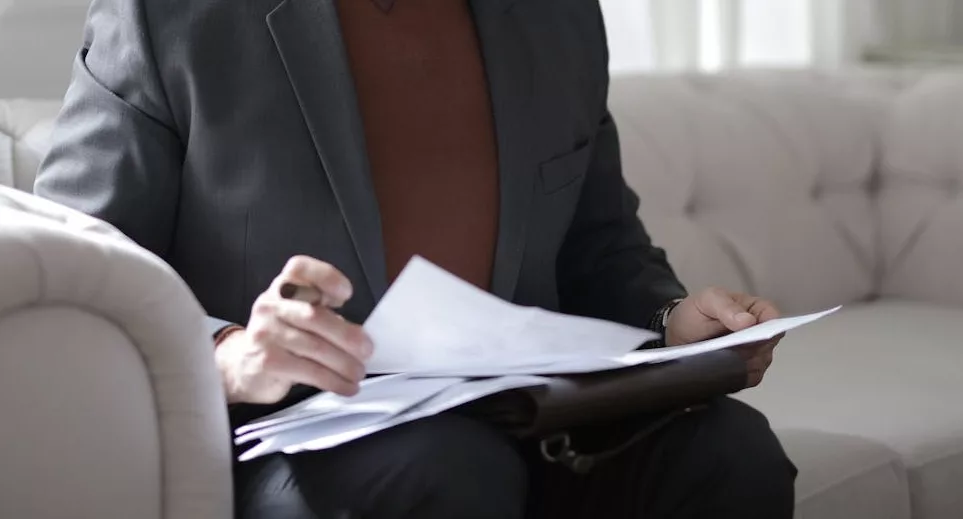In the blink of an eye, life can take an unexpected turn. Suddenly, you could find yourself struggling with injuries sustained through no fault of your own. At times like these, having the proper support and guidance is crucial.
Have you suffered injuries due to another’s actions injured in Hartford, Connecticut? Are you considering filing an insurance claim or lawsuit? Do you need justice and financial compensation – fast?
Gould Injury Law understands the challenges you are facing. Our compassionate legal team is here to offer a helping hand. Keep reading to discover how a free consultation with our experienced legal team can make all the difference in your case faster and with satisfaction.

What to Expect During a Free Consultation With a Hartford Lawyer
You should not have to suffer due to someone else’s negligence or careless conduct. If you were wrongfully injured, you have the right to seek justice. So why not schedule a free consultation with an attorney today to learn your legal options?
A free consultation with a Hartford, Connecticut, personal injury lawyer lets you discuss your accident with a legal professional without facing any financial commitment or obligation to use the firm’s services. The consultation is simply an opportunity to receive honest legal advice.
During this meeting, you can present the details of your situation, any evidence you have, and the nature of your injury. In return, the attorney will assess the merits of your case and guide you on how to proceed.
This initial meeting allows you to determine whether the lawyer fits you and whether he or she has the skills necessary to handle your personal injury lawsuit effectively. It also allows you to ask questions about the legal process and learn what to expect moving forward.
What to Ask a Potential Attorney During a Free Initial Consultation
The benefits of a free consultation extend beyond just receiving initial advice. An initial meeting with a law firm is a chance to build confidence in the legal representative you choose to handle your case. By taking advantage of this no-cost opportunity, you empower yourself to make informed decisions about pursuing legal action.
How can you make the most of a free consultation? A good start is knowing the right questions to ask.
Why is it important to come armed with the right questions? The goal of this meeting is for you to feel confident with the information you receive so you can make a well-informed choice.
The following are suggestions for discussing with a potential injury lawyer. Of course, feel free to create your own list of questions. If you choose to do so, carefully consider what information you think is necessary before making a balanced legal decision.
“How many years have you been practicing personal injury law?”
Experience in personal injury law is necessary when navigating Hartford’s legal system. Tort or personal injury law is nuanced and often complex, even for seemingly clear-cut lawsuits.
Seasoned attorneys know how to overcome hurdles that may arise. They have likely encountered a wide range of scenarios, which enables them to anticipate challenges and develop effective strategies.
Of course, years in practice alone don’t guarantee success. What’s more important is a lawyer’s familiarity with and competence in handling the nuances of personal injury law.
“What were the outcomes of cases similar to mine that you have handled?”
Inquiring about the outcomes of past clients provides insight into the lawyer’s track record of success. Of course, every case is unique, and past results do not indicate future outcomes. Still, a lawyer’s demonstrated legal prowess is a good sign that he or she knows how to achieve justice for you.
“What are the potential strengths and weaknesses of my personal injury case?”
The initial assessment is a foundation for creating a strategy tailored to your circumstances. How so? A lawyer’s initial assessment can offer insight into your case’s strengths and weaknesses.
Identifying potential strengths highlights favorable aspects that can be useful in court. Recognizing weaknesses helps your legal team anticipate challenges. When potential problems are discerned, your team can stay one step ahead of the defense by figuring out ways to strengthen those aspects.
“Will you handle my case personally, or will it be assigned to another attorney or paralegal?”
You should find out whether the lawyer you are consulting will personally handle your case or delegate it to another member of the same legal team. Establish clear communication expectations between you, the assigned attorney or paralegal, and the primary lawyer overseeing your case.
If your case is assigned to another attorney or paralegal, ensure a system is in place to maintain continuity of care. Your primary concerns, case details, and any developments should be effectively communicated to the legal team.
“How often will you communicate with me regarding updates and developments in my personal injury case?”
Establish a communication schedule that works for both you and the lawyer. This ensures you are regularly updated on the progress of your case without feeling overwhelmed by constant communication.
Determine your preferred mode of communication, such as text, email, in-person meetings, etc. The lawyer should commit to keeping you informed about significant developments, such as settlement offers, court dates, or changes in strategy.
Your legal team should be accessible to address any questions or concerns you may have throughout the legal process. Inquire about procedures for urgent matters or emergencies that may arise during your case.
“What is your fee structure?”
The lawyer should clearly outline the firm’s fee structure, including any upfront costs, retainer fees, or hourly rates. If the firm works on a contingency fee basis, you only pay if you win the case and receive compensation.
Inquire about the percentage of the settlement or award the firm will take as their fee from your settlement.
“Are there potential expenses I should be aware of?”
Clarify whether there are any additional expenses associated with your case, such as filing fees, expert witness fees, or costs for obtaining medical records.
Ask the lawyer to clarify who is responsible for covering these costs – you or the law firm – and whether such costs will be deducted from any settlement received. You deserve full transparency when discussing the financial aspects of hiring a firm’s services.
“When would you recommend accepting a settlement versus going to trial?”
Whether in the negotiation room or at trial, the lawyer you choose should prioritize achieving fast and just settlements that adequately compensate you for your injuries, damages, and financial losses.
Of course, cases that settle out of court typically resolve more quickly than those that go to trial. However, your legal team should be able to pivot their strategies fast based on the progress of your case.
However, the decision to accept a settlement or proceed to trial depends on multiple factors, such as:
- The strength of your case
- Potential damages awarded
- Costs and time involved in litigation
- Your personal preferences and priorities
Your personal injury attorney should empower you to make informed decisions by providing comprehensive information and explanations of each option’s pros and cons. You should also confirm that he or she is prepared to take your case to trial if negotiations fail to reach a satisfactory outcome.
Damages You May Be Entitled to Receive
During your initial consultation with a personal injury lawyer, one topic of discussion may be the types of damages you may be eligible to receive from a personal injury lawsuit.
Damages are related to the losses and injuries you have suffered due to someone else’s negligence or wrongful actions. As far as compensation, these damages are typically categorized into two main types: non-economic and economic damages.
Non-economic damages
Non-economic damages are intangible losses that are more challenging to quantify since they lack a specific dollar value. They compensate for the pain, suffering, and emotional distress caused by the injury.
During your consultation, your lawyer may discuss the following types of non-economic damages.
Pain and suffering
Pain and suffering damages offer compensation for pain and emotional distress caused by the injury, including chronic pain, discomfort, and anguish.
Emotional distress
Emotional damages may be awarded for psychological trauma, such as anxiety, depression, post-traumatic stress disorder (PTSD), and loss of enjoyment of life.
Economic damages
Economic damages are quantifiable losses. This means they have a specific monetary value and can be documented with evidence such as:
- Medical bills
- Receipts
- Pay stubs and other financial statements
Your lawyer may discuss the following types of economic damages during your consultation.
Medical expenses
You may be granted compensation for past and future medical bills related to treating your injuries. These expenses may include hospitalization, surgeries, medications, therapy, and rehabilitation.
Lost income
Damages may be awarded for any wages or income you’ve lost due to your injury-related inability to work. These damages may cover missed workdays, reduced earning capacity, and lost employment opportunities.
Property damage
You may be awarded compensation for any damage to your property. These damages may cover your vehicle if it was damaged in a car accident or personal belongings that were damaged or lost due to what happened.
What to Expect After the Initial Consultation
If you hire the firm to handle your case after the initial consultation, your lawyer will conduct a thorough investigation into the circumstances surrounding your accident. This may involve gathering evidence, interviewing witnesses, and obtaining relevant documents or records.
Personal injury claims are often resolved through negotiation with the responsible party’s insurance company. Your lawyer will handle all communications with the insurance company and negotiate on your behalf to reach a fair settlement.
Suppose a fair settlement cannot be reached through negotiation. In that case, your lawyer may recommend filing a lawsuit and taking your case to court. In some cases, alternative dispute resolution methods such as mediation or arbitration may be used to resolve the case outside of court. Your lawyer will guide you through these processes and represent you during negotiations.
Let a Hartford Personal Injury Attorney Help You on Your Journey to Justice
At Gould Injury Law, we are more than just a law firm – we are your dedicated advocates in seeking justice for personal injury cases. Our experienced team of Hartford, CT, personal injury lawyers readily helps injury victims seek the fast and fair compensation they need after an accident.
Our commitment to excellence sets us apart as the right choice for those seeking fast and proper compensation after suffering injuries due to someone else’s negligence.
When you choose Gould Injury Law, you can trust that you will have a reliable ally by your side every step of your legal journey. We understand the nuances of personal injury law and can guide you toward justice. When you hire us, we will work tirelessly to help you recover fast compensation for your damages.
Remember, time is of the essence when seeking justice for your injuries. Under Connecticut’s statute of limitations, you only have a short time to file a personal injury claim. Once this legal time limit expires, you could be barred from receiving the fast monetary compensation you need.
Act fast to protect your legal rights. Contact Gould Injury Law today to schedule a free consultation with a personal injury lawyer in Hartford, Connecticut. Call 888-WIN-FAST or complete our online contact form.
